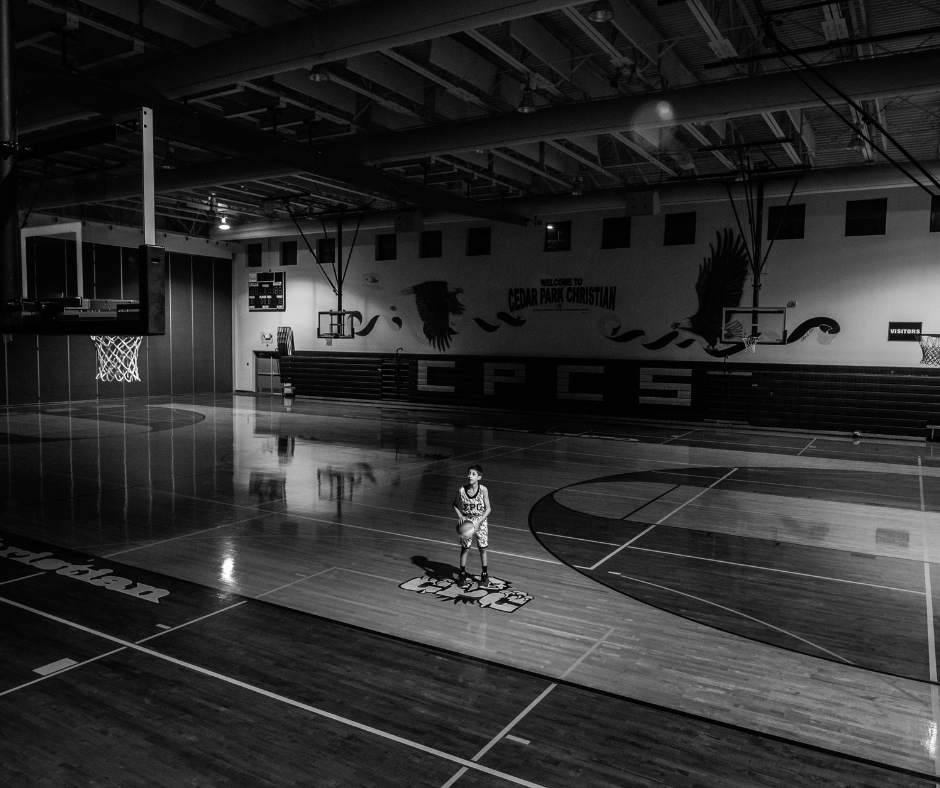
Loneliness In Sports
Loneliness in Sports. One of the greatest things about sports is the feeling of being part of something bigger than yourself. This sense of belonging is an expectation when your child joins a team. It’s one of the main reasons a lot of parents sign their kids up for youth sports: for connection and friends. But for many, a sense of connection isn’t always there. Instead, they feel like they’re on the outside looking in. They feel even more alone.
A recent study led by Dr. Trish Jackman at the University of Lincoln reveals that loneliness is a significant issue affecting athletes, coaches, and officials at all levels of sport and that loneliness is closely tied to serious mental health concerns such as anxiety, depression, and even suicidal thoughts.
Why Loneliness is Prevalent in Sports
The competitive nature of sports and cultural norms discourages vulnerability and contributes to feelings of isolation. Athletes are often conditioned to push through discomfort, to “tough it out,” and not show weakness. While this mindset may serve them on the field, it can be damaging off it, especially when it comes to emotional struggles. The study highlights that male athletes and coaches, in particular, feel pressured to conform to traditional masculine ideals, which often discourage seeking help or discussing feelings of loneliness.
Loneliness in athletes can stem from various causes. An injured player might find themselves sidelined, feeling disconnected from the team. Others may struggle with not being a top performer, leading to a sense of invisibility and not knowing how to contribute {check out this article for different ways players can learn to add value}. For some, simply being new to a team or not fitting into established social circles can heighten feelings of isolation. These situations can make athletes feel deeply alone despite being surrounded by teammates.
Loneliness Is Not Just an Athlete’s Issue
Interestingly, the study also found that loneliness extends beyond the athletes themselves. Coaches and sports officials experience similar feelings of isolation, often due to the unique pressures of their roles. Coaches may spend long hours planning, traveling, and focusing on their team, but they can still feel detached, especially when dealing with the pressure to deliver results. For some, the role becomes lonely because they’re always expected to be strong, knowledgeable, and in control.
Officials face their own set of challenges. Constantly dealing with criticism from fans and players and lacking a consistent or present support system can contribute to a sense of isolation.
Why So Many Young Athletes Feel This Way
This can be a natural part of growing up, but the issue can be amplified for athletes. Being on a team comes with an expectation of unity and togetherness, so when a player doesn’t feel that connection, it can deepen their feelings of loneliness. The competitive atmosphere and emphasis on performance can make speaking up about these emotions difficult.
I’ve seen it firsthand too often. An ACL injury sidelined a friend of mine’s son during his junior year. While his teammates were experiencing a successful football season, he was often stuck in rehab, apart from the team. He felt completely disconnected and fell into a deep depression as his friends and his dreams of playing in college seemed to be slipping away. Another friend shared that her daughter never really felt she fit in and wouldn’t be asked to the sleepovers or ice cream gatherings after the game; that was her last season playing volleyball.
The Need for Targeted Interventions
Despite the growing attention on mental health in sports, Dr. Jackman’s study found a lack of specific interventions aimed at reducing loneliness. While more general mental health programs exist, few initiatives directly tackle social isolation. This gap needs to be addressed because creating connections within teams can significantly alleviate the negative effects of loneliness.
Fostering social connections isn’t just about team spirit; it’s about building an environment where everyone—athletes, coaches, and officials—feels seen and valued. Coaches have the unique ability to set the tone, creating a culture where it’s okay to talk about struggles and where no one feels like they’re on the outside. Even small actions, like checking in with a player who’s been quieter than usual or making an effort to include officials in team discussions, can help build a more inclusive atmosphere.
The study calls for targeted strategies that focus on these social connections. Imagine if coaches received training not only in drills and tactics but also in recognizing when a player might be struggling with feelings of isolation. What if athletes were encouraged to support one another off the field as much as they do during a game? Addressing these issues openly can change the narrative, showing that vulnerability isn’t a weakness but a way to build stronger, more cohesive teams. We need to normalize these feelings, not to downplay them, but to make it easier for everyone to speak up and seek support. Sports are meant to unite and create bonds that last a lifetime, but we can’t assume that being on a team is enough.











